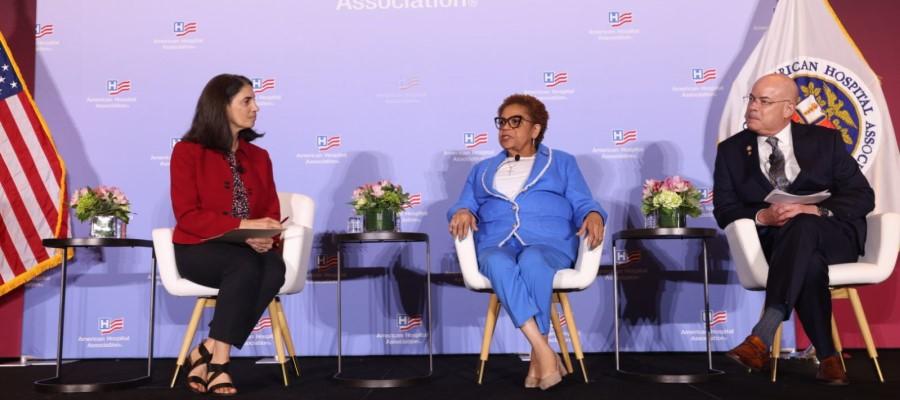Health care leaders examine prior authorization policies

Challenging prior authorization policy requirements were addressed in an AHA Annual Membership Meeting panel discussion moderated by Marilyn Werber Serafini, executive director for the Health Program at the Bipartisan Policy Center.
Shikha Jain, M.D., Department of Hematology & Oncology, UI Health, who appeared in a recent New York Times video about prior authorization, said some commercial insurance practices, including prior authorization, lead to care delays, administrative burdens on hospitals, health systems and physician practices, as well as physician burnout. Ruby Kirby, CEO of Bolivar-Camden General Hospital in Tennessee, and Kurt Barwis, president and CEO of Bristol Health in Connecticut and AHA board member, spoke on how prior authorization has impeded their ability to provide adequate and timely care for their patients.
Initial denials for care authorization have grown over 40% since 2020, said Matthew Szaflarski, Revenue Cycle Intelligence Leader at Kodiak Solutions. Rachel Schwab, assistant research professor at the Georgetown University Health Policy Institute’s Center on Health Insurance Reforms, discussed programs and policies that some states are beginning to pursue in an attempt to reduce the burdens of prior authorization, including improved transparency, extended prior authorization approval lengths of time and carry-over if the patient changes insurance plans, or provider “gold carding” for those with high rates of prior authorization that would exempt them from prior authorization requirements for certain medicines or procedures.
“In a clinic of 20 patients, let's say at least five to eight of them are going to need prior authorizations for either imaging or drugs,” Jain said. “And with the patients we treat at University of Illinois, we treat a population that oftentimes comes to see a doctor when they have advanced disease. So, for them, it's an even bigger clinical impact when starting therapy, or getting imaging is delayed. But if the cancer treatment is delayed, … it's absolutely devastating.”
“The idea of prior authorization was a good one, but it’s not doing what it was intended to do,” said Jain.

